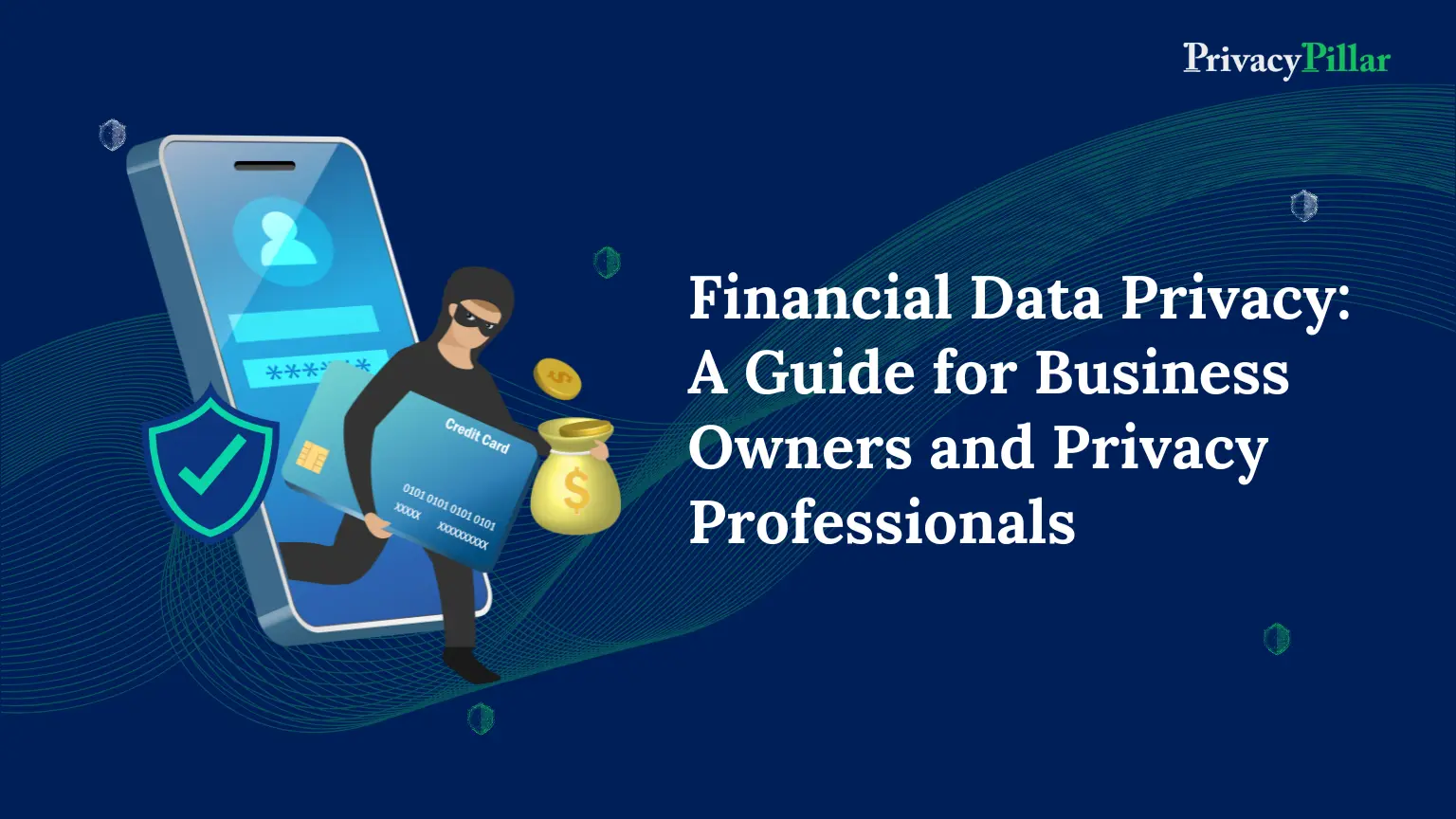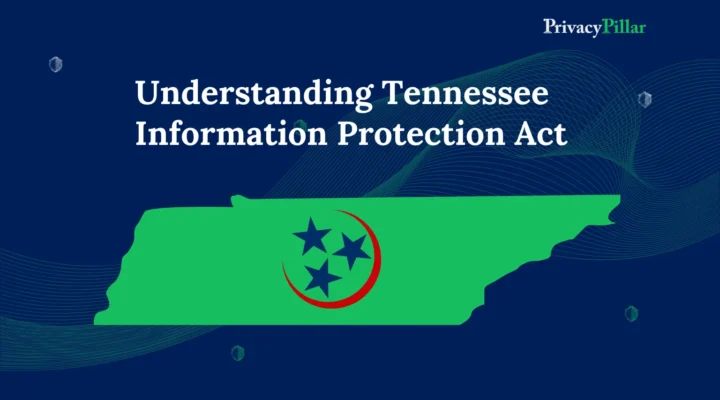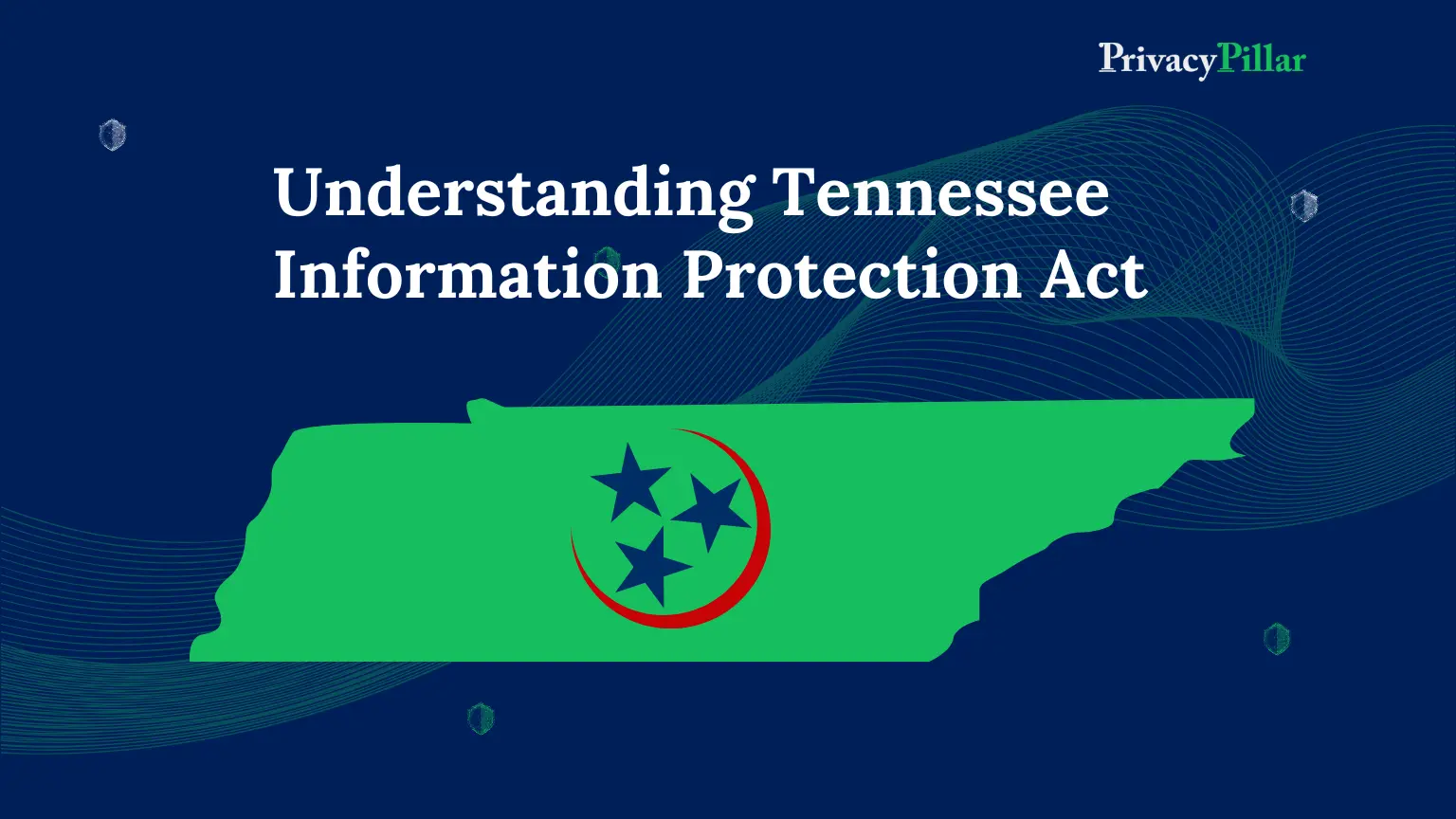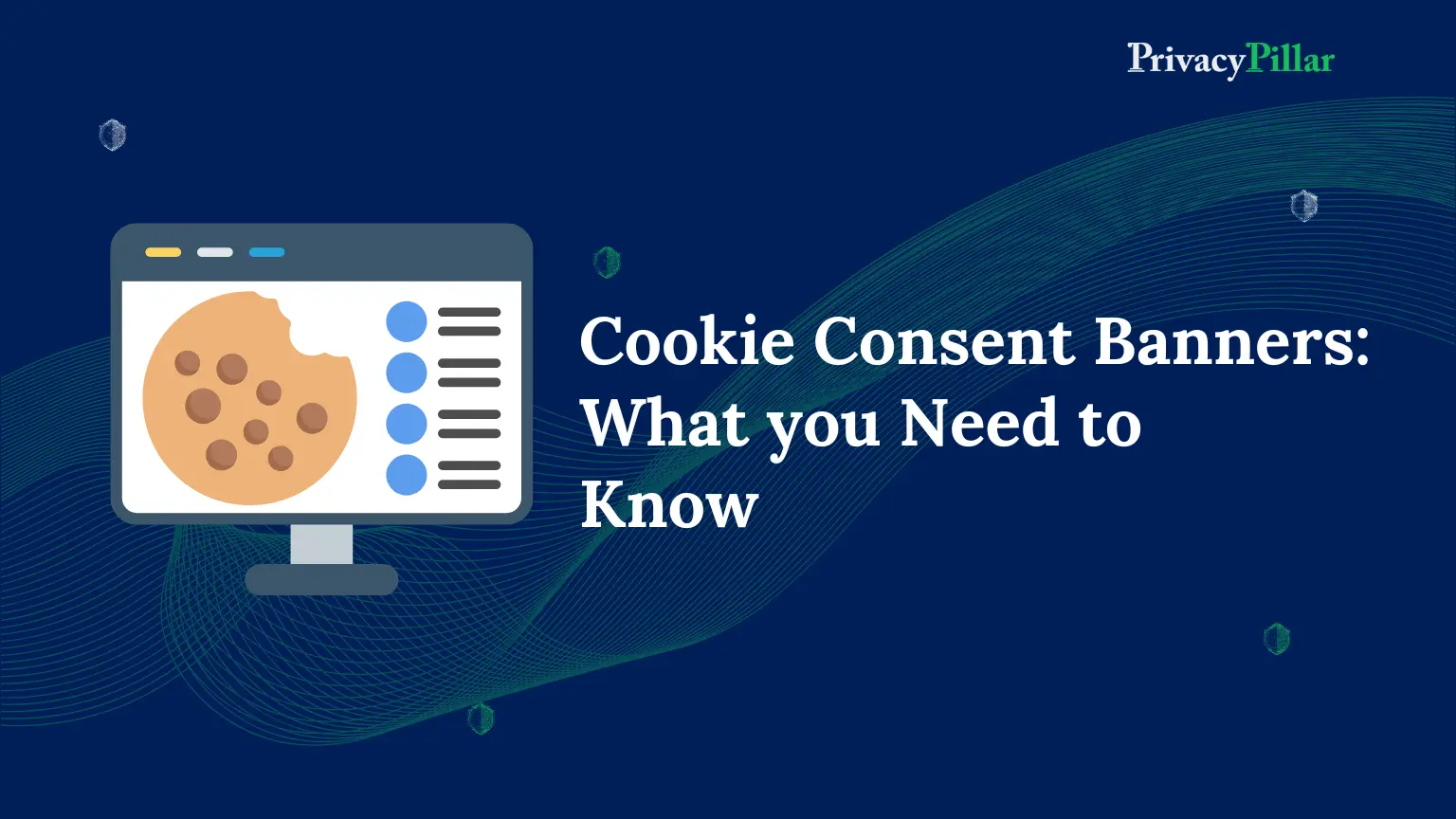
Financial Data Privacy: A Guide for Business Owners and Privacy Professionals
With more data breaches happening, strict rules, and higher customer expectations, protecting sensitive financial information is more important than ever. In this article, we’ll explore what financial data privacy is, why it matters, the risks involved, and how you can protect your business. Whether you’re a business owner or a privacy expert, this guide will give you the information you need to keep financial data safe and compliant with regulations.
What is Financial Data Privacy?
Financial data privacy means keeping personal and financial information safe from unauthorized access, misuse, or exposure. The financial data includes bank account details, credit card numbers, transaction histories, tax records, and other data that could lead to identity theft or fraud. Protecting this information is crucial for keeping customer trust and protecting your company’s reputation.
Why is the Privacy of Financial Data Important?
Financial data is overly sensitive, and if it gets into the wrong hands, it can lead to identity theft, financial fraud, or serious breaches. Protecting the privacy of financial data is not just a legal requirement but also an important practice of ethical business.
Types of Financial Data That Need Protection
There are several types of financial data that your business needs to protect:
- Credit Card Information: Card numbers, CVV codes, expiration dates.
- Bank Account Details: Account numbers, bank routing information, transaction histories.
- Personal Identifiable Information (PII): Social Security numbers, and any information that links back to an individual.
- Financial Statements: Income, expenditure, loans, mortgages, and investment records.
- Transaction Data: Details about purchases, sales, or other financial activities.
Understanding what data needs protection is the first step to build a strong financial data privacy strategy.
What Are the Risks of Not Protecting Financial Data?
The consequences of not protecting financial data can be severe. Some of them are:
- Financial Loss
- Legal Penalties
- Reputation Damage
- Operational Disruptions
- Customer Loss
Regulations Governing Financial Data Privacy
Privacy regulations are important because they help businesses manage financial data safely and responsibly. These rules vary by region and industry, but they all aim to protect people’s financial information. Here are some critical privacy regulations you need to be aware of:
- General Data Protection Regulation (GDPR): This is a privacy law that protects the personal data of people in the European Union (EU). It focuses on data privacy and gives individuals control over their information, including financial data. Businesses must meet strict rules for how they handle and protect this data. They need to be clear about how they use personal information and must get consent from individuals before using their data.
- California Consumer Privacy Act (CCPA): This law gives people in California rights over their personal information. These rights include accessing their data, deleting it, and choosing not to sell it. For financial data, the CCPA also requires businesses to take reasonable steps to protect sensitive information.
- Gramm-Leach-Bliley Act (GLBA): This law is for financial institutions in the United States. It requires them to protect sensitive financial information. Businesses must give their customers privacy notices that explain how they collect, use, and share data. The law also requires companies to have strong security programs to keep customer data safe.
- Fair Credit Reporting Act (FCRA): This U.S. law protects your credit information. It ensures that consumer credit data is accurate, fair, and private. The FCRA provides rules for credit reporting agencies and businesses on how to handle credit information, including financial details. This law aims to shield consumers from identity theft and the misuse of their information.
- Personal Information Protection and Electronic Documents Act (PIPEDA): This is Canada’s main privacy law, regulating how businesses manage personal data, including financial details. It requires businesses to obtain consent before collecting or using personal data, and it ensures that the data is still accurate, complete, and secure.
- Brazil’s General Data Protection Law (LGPD): This is Brazil’s data privacy regulation, similar to the GDPR. It pertains to businesses that handle personal data, including financial information, and requires that data management adheres to strict guidelines of consent, transparency, and security.
- South Africa’s Protection of Personal Information Act (POPIA): This law governs the processing of personal information, including financial data, in South Africa. Its purpose is to protect individuals from harm by mandating that businesses manage personal data responsibly and securely.
- Singapore’s Personal Data Protection Act (PDPA): This law regulates how personal data, including financial information, is collected, used, and disclosed in Singapore. Organizations must obtain consent before gathering financial data and are required to implement data protection measures to prevent unauthorized access.
- India’s Digital Personal Data Protection Act (DPDP Act): This act aims to protect personal data, including financial information. It outlines the essentials for obtaining user consent and emphasizes the need for transparency, accountability, and security measures for businesses that manage personal data.
Best Practices for Financial Data Privacy
Here are some strategies to consider:
Collect Only What You Need: Collect only the necessary financial data you need for your business processes.
Transparency with Customers: Provide clear and transparent privacy notice to your customers about what data you collect, why you collect such data and how their data will be processed.
Manage their consent preferences: Obtain their explicit consent before collecting and processing their financial data. You can use Consent Management Platforms to obtain their consent and manage their consent preferences.
Implement Strong Access Controls: Control who has access to financial data. Use role-based access, ensuring that only authorized personnel can view or modify sensitive information.
Data Encryption: Encrypt financial data at rest and in transit. Encryption ensures that even if data is accessed without authorization, it remains unreadable.
Regular Privacy Audits: Conduct periodic audits to assess your data handling practices. This will help identify areas for improvement and ensure compliance with regulations.
Data Anonymization and Pseudonymization: Use techniques like anonymization (removing personal identifiers) or pseudonymization (replacing identifiers with artificial ones) to protect sensitive data while maintaining its usability.
Privacy by Design: Embed privacy into your business processes from the start. Consider privacy implications in every decision, whether you are designing a new product, updating software, or launching a new service.
Regular Audits: Conduct regular audits to identify vulnerabilities in your system. This helps in spotting risks before they become real problems.
Employee Training: Make sure employees understand the importance of financial data privacy. Provide regular training sessions to update them on the latest threats.
Incident Response Plan: Have a clear plan in place in case of a data breach that should include how to contain the breach, notify affected parties and the authorities.
Secure Payment Systems: Use secure and compliant payment processing systems. Implement two-factor authentication for accessing sensitive financial system.
How Financial Data Privacy Impacts Customer Trust?
Privacy is not just about keeping data safe, it is about building and maintaining trust. When customers feel assured that their financial data is protected, they are more likely to engage with your business. Here’s how data privacy influences trust:
- Transparency: Being open about your data practices builds credibility.
- Control: Empowering customers with control over their data increases their comfort level.
- Consistency: Regularly updating privacy practices to meet the latest standards shows a commitment to safeguarding information.
Focusing on privacy, rather than merely reacting to breaches, helps to foster a positive relationship with your audience.
Technologies to Automate Financial Data Protection
There are tools and technologies that can help businesses automate financial data protection:
- Data Loss Prevention (DLP): Prevents unauthorized data transfer and monitors for suspicious activity.
- Encryption Software: Automatically encrypts sensitive data at rest and in transit.
- Access Management Tools: Manages who can access what data, reducing the risk of internal leaks.
- Automated Compliance Tools: Use tools like Consent management platform, Data Subject Access Request Automation to automate your privacy compliance.
Conclusion
Financial data privacy is essential not only as a legal obligation but also as a key business necessity. For business owners, protecting customer information and following regulations are crucial for maintaining trust. By understanding how important financial data privacy is and taking the right steps, you can protect sensitive information, avoid costly breaches, and build a reputation for being reliable and secure.



